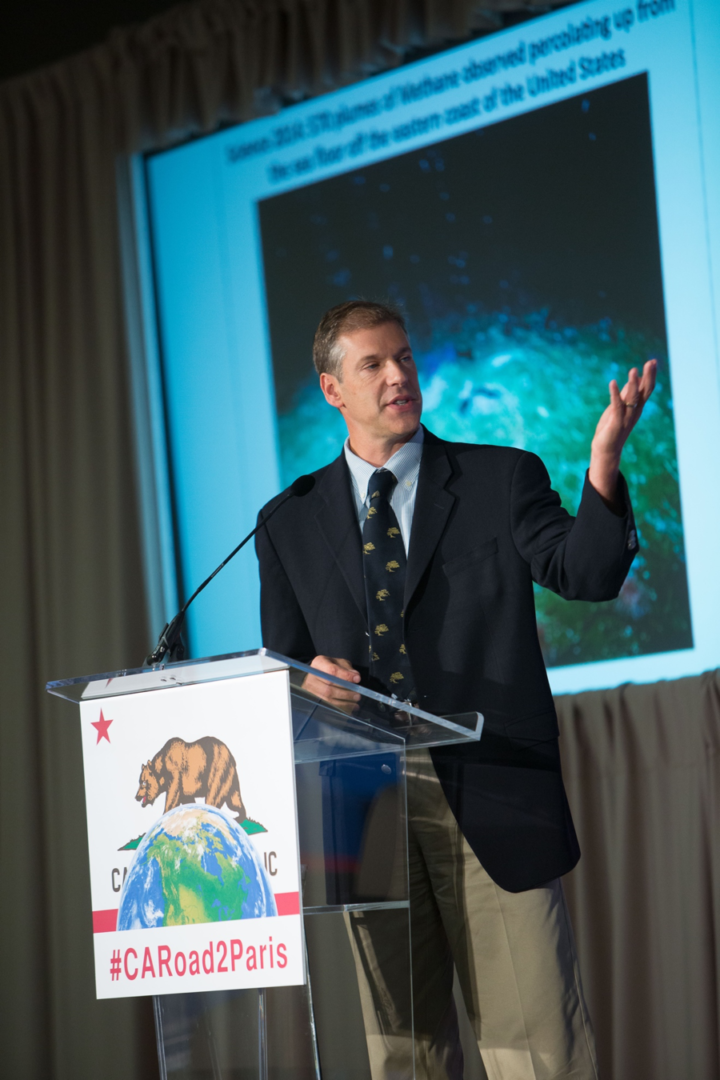The economic case for energy, equity, and climate leadership
The economic case for clean energy is as compelling as is the climate science, writes Professor Daniel Kammen of the University of California, and Science Envoy for the US State Department
By Pippa Henderson
Share
Last updated:
The election of Donald Trump as president of the United States and the possibility of the installation of a team of climate change "skeptics" at both the US Environmental Protection Agency and the Department of Energy, is not only deeply distressing environmentally, but it flies in the face of what a businessman-turned-populist-candidate who champions the under-employed would logically do.

Business leaders succeed when they apply their savvy and sense of mission to an ever-changing landscape, and turn challenges into opportunities. First, there is now an unambiguous record of climate change science, and extensive data showing that clean energy projects simply generate more jobs than those in the fossil fuel sector. No amount of rhetoric will return the coal industry to prominence, and in fact the $8 billon allocated by President Obama to assist the transition to other professions is a good start. Second, the biggest opposition to coal, in a business sense, is gas, another industry Mr. Trump embraces. One of these two has a complex future; the other – domestically in the US at least – does not.
The real business winners, where to ‘double down’ so to speak, are renewables, and this is where a huge private sector future and great job creation potential exist. With solar and wind energy projects reaching prices in the 2.5-4 US cent/kWh range, the economic case for clean energy is as compelling as is the case for clean energy as the fastest way to provide energy access to the global poor, boosting their economic opportunities and capacity. This dramatic growth in the capacity and power of clean energy to meet economic needs in the US and abroad means that a simple economic argument exists to be bullish on clean energy, even before the local and global environmental benefits. The economic benefits of these clean energy projects are even more profound if combined with domestic manufacturing campaigns around electric vehicles, which brings an entirely new research and company growth angle to the high-tech sector.
In a report we recently released in London, the findings are clear that renewable energy options, in some cases supported by natural gas, and in others without, are a faster route out of energy and economic poverty than coal energy projects, which often get in the way of economic growth and empowerment.
Many of the challenges we are seeing today globally relate to issues where clean energy can play a vital mitigating role. The resource demands of mega-cities translate directly into massive economic costs, health-damaging pollution, and politically costly unrest. In a recent assessment we have found that the capacity for new technologies to turn urban areas into healthier sites of greater and greater levels of self-generation address all these evils. The production and export of the mixture of clean energy and water technologies, and of the smart sensors, energy storage technologies, and the efficient systems needed to implement these innovations, is a global growth industry that can make the Paris Climate Accord a new pillar of economic growth and political stability.

A sound, economically empowering energy plan would not be complete without a focus on these energy opportunities, a situation made more compelling because the global energy markets are embracing the clean energy transition. Jordan, Kenya, Morocco, Nicaragua, China, and many other nations are examples of places seeing a merging of the business and environmental case to push for and beyond the Paris Climate Accord goals.
My laboratory is modelling the energy transition opportunities in each of these nations, and the results consistently find that the path dominated by clean energy is the best economic path as well. These nations are building gigawatt-scale clean energy power plants, and ramping up the innovation and industrial sectors at the same time. Sub-national regionals are pursuing these energy strategies in great numbers, too, with the “Under 2 degree MOU” an example of the fast and diverse pace of these programs.
The smart money is on clean energy. The US would be turning its back on both economic and leadership opportunities by not pursuing these goals.
A pro-business, pro-worker president will promote and campaign for a sustainable climate because of the clean energy business that goes with it. The international climate conference in Marrakech this week attests that the world will be pursuing clean energy with or without the United States; but the United States and its president have the opportunity to lead and profit from this transition.
Daniel M. Kammen is Professor in the Energy and Resources Group and in the Goldman School of Public Policy at the University of California, Berkeley, and Science Envoy for the U. S. State Department.
You can contact him at kammen@berkeley.edu or on Twitter @dan_kammen
Share